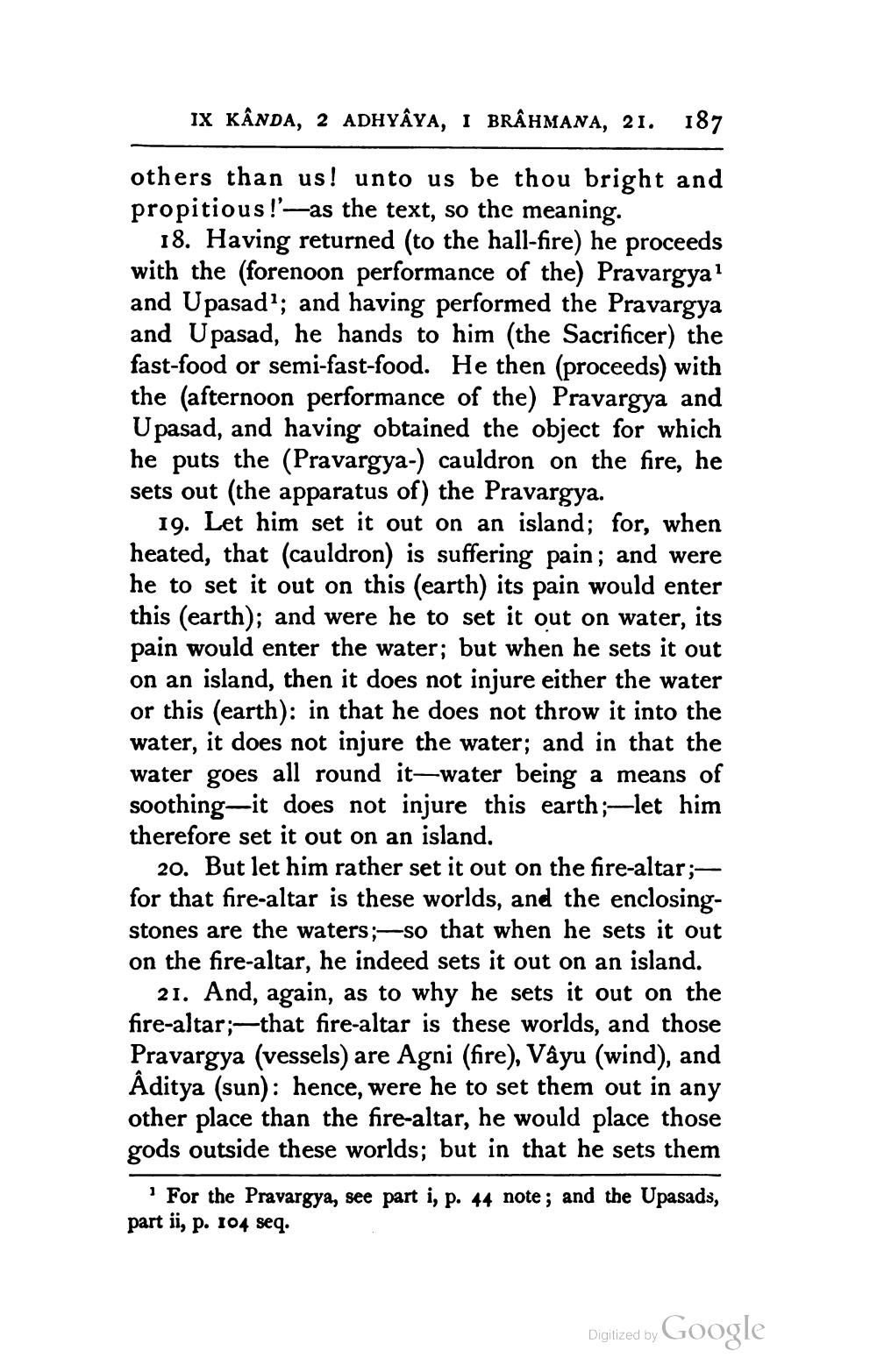________________
IX KÂNDA, 2 ADHYAYA, I BRAHMANA, 21. 187
others than us! unto us be thou bright and propitious!' as the text, so the meaning.
18. Having returned (to the hall-fire) he proceeds with the (forenoon performance of the) Pravargya1 and Upasad1; and having performed the Pravargya and Upasad, he hands to him (the Sacrificer) the fast-food or semi-fast-food. He then (proceeds) with the (afternoon performance of the) Pravargya and Upasad, and having obtained the object for which he puts the (Pravargya-) cauldron on the fire, he sets out (the apparatus of) the Pravargya.
19. Let him set it out on an island; for, when heated, that (cauldron) is suffering pain; and were he to set it out on this (earth) its pain would enter this (earth); and were he to set it out on water, its pain would enter the water; but when he sets it out on an island, then it does not injure either the water or this (earth): in that he does not throw it into the water, it does not injure the water; and in that the water goes all round it-water being a means of soothing-it does not injure this earth;-let him therefore set it out on an island.
20. But let him rather set it out on the fire-altar;for that fire-altar is these worlds, and the enclosingstones are the waters;-so that when he sets it out on the fire-altar, he indeed sets it out on an island.
21. And, again, as to why he sets it out on the fire-altar; that fire-altar is these worlds, and those Pravargya (vessels) are Agni (fire), Vâyu (wind), and Aditya (sun): hence, were he to set them out in any other place than the fire-altar, he would place those gods outside these worlds; but in that he sets them
For the Pravargya, see part i, p. 44 note; and the Upasads, part ii, p. 104 seq.
Digitized by
Google




